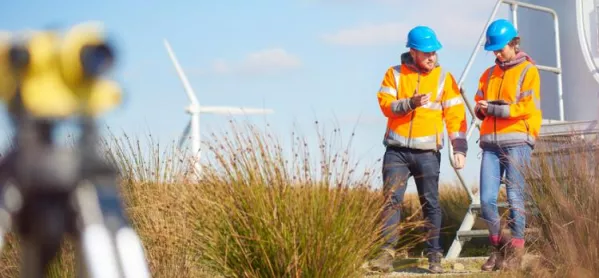- Home
- Colleges to play ‘major’ role in Institutes of Technology
Colleges to play ‘major’ role in Institutes of Technology

The first of the government’s new Institutes of Technology are to open in 2019 with FE colleges playing “a major part”, the government has said.
A draft Institute of Technology (IoT) public policy document by the Department for Education (DfE), seen by Tes, confirms that the institutes should be joint projects between at least one FE institution or private provider and a higher education institution, as well as local employers who could be “anchor partners”. It also stresses they should build on “existing assets” where possible and adds provision at sub-degree level should be a focus.
IoTs were first announced two years ago, but few details have since emerged. In July, the Department for Education told Tes more details will be published “in due course”. However, a job advert revealed the government planned to establish “around 10 to 15 IoTs” by the end of the current Parliament.
Collaborative approaches
After original proposals had suggested they could be spearheaded by existing colleges, the Conservative Party’s general election manifesto in May proclaimed that IoTs would be “linked to leading universities”.
Now, the new draft policy paper confirms the government “would expect to see evidence of collaborative approaches between employers and the FE and HE sectors, where the assets and resources of each are combined to maximise their relative strengths”.
It adds: “We would expect FE colleges to play a major part in these collaborations given their expertise in meeting employer needs and the partnerships they have established with employers, [local enterprise partnerships] and combined authorities through the area review process.”
The document goes on to state that the £170 million fund, announced by the prime minister in January, was “for capital investment to support industry-standard facilities and equipment, building where possible on existing assets”. The government would expect IoTs to harness other revenue streams, including the apprenticeship levy, relevant grant funding through the Education and Skills Funding Agency (ESFA) and Hefce, tuition fees and advanced learner loans. “This can be supplemented by commercial income such as bespoke courses for local employers.”
Institutes of Technology and colleges
In a statement, the Collab Group said it was “delighted that our recommendations - most prominently the need for these institutions to leverage existing assets - have been incorporated in these proposals”.
“Our colleges are seeing themselves as the ones who can stand this up and move this forward,” the statement added. “The FE sector, with its strong employer relationships and locally embedded provision provide a natural fit for the development of these important institutions.”
Association of Colleges chief executive David Hughes said he was pleased to see clarity on the way forward for IoTs. “New capital investment in colleges is always to be welcomed and this will undoubtedly help provide great facilities and equipment for much needed higher level technical skills and education,” he said. “Every employer survey shows that there are worsening skills shortages at technical and professional levels which IoTs are designed to meet.”
He added he expected “lots of great bids to come forward and with collaboration between employers, colleges and others”.
“As well as providing new facilities and equipment, IoTs will need to increase demand for and increase employer investment in level 4 and 5 in this country. There must also be more attention to careers advice and proper maintenance support for people to participate, if these new Institutes are to be successful,” said Mr Hughes.
Want to keep up with the latest education news and opinion? Follow Tes FE News on Twitter, like us on Facebook and follow us on LinkedIn
Register with Tes and you can read two free articles every month plus you'll have access to our range of award-winning newsletters.
Keep reading with our special offer!
You’ve reached your limit of free articles this month.
- Unlimited access to all Tes magazine content
- Save your favourite articles and gift them to your colleagues
- Exclusive subscriber-only stories
- Over 200,000 archived articles
- Unlimited access to all Tes magazine content
- Save your favourite articles and gift them to your colleagues
- Exclusive subscriber-only stories
- Over 200,000 archived articles



